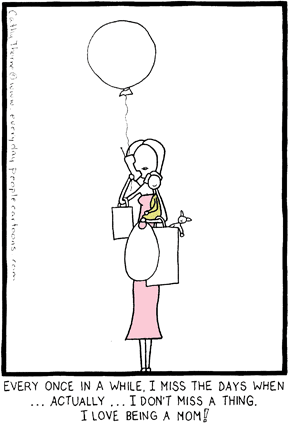Perkara ini terjadi kepada anak kedua saya. Kali pertama ianya berlaku sewaktu dia berumur 10 bulan.Dia terjatuh ketika bermain dan selepas menangis beberapa ketika dia terus tidak sedarkan diri.Kali kedua berlaku ketika itu dia sedang menangis sehingga suaranya tidak kedengaran.Selepas beberapa ketika dia terus pengsan.Apabila saya merujuk nya kepada pakar kanak-kanak , doctor mendiagnoskan anak saya mengalami “Breath Holding Attack”. Untuk lebih memahami apa yang dimaksudkan oleh Breath Holding Attack silalah baca artikel di bawah ini.Bagi sesiapa yang mempunyai anak yang mengalami masalah yg sama bawalah anak anda untuk pemeriksaan lanjut. Selamat membaca!!!
Breath-Holding Spells
What is a breath-holding spell?
A breath-holding spell is when your child holds his breath until he passes out. Breath-holding spells begin between the ages of 6 months and 2 years. They occur only while the child is awake.
During a breath-holding spell:
1)Your child may make 1 or 2 cries and then hold his breath until he becomes blue around the lips and passes out.
2)Your child may stiffen and may have a few twitches or muscle jerks.
3)Your child will breathe normally again and become fully alert in less than 1 minute.
What is the cause?
An abnormal reflex allows 5% of normal children to hold their breath long enough to pass out. It is not deliberate. These spells can be triggered by frustration, a fall, or something frightening.
Holding the breath (when frustrated) and becoming bluish without passing out is such a common reaction in young infants that it is not considered abnormal.
How long does it last?
Breath-holding spells usually occur from 1 or 2 times a day to 1 or 2 times a month. Children usually stop having breath-holding spells by the time they are 4 or 5 years old.
Breath-holding spells are not dangerous, and they don't lead to epilepsy or brain damage.
How can I take care of my child?
Treatment during attacks of breath-holding
These attacks are harmless and stop by themselves. Time the length of a few attacks, using a watch with a second hand.
1)During an attack, do not hold your child upright. Instead, he should lie flat. This position will increase blood flow to the brain and may prevent some of the muscle jerking.
2)Put a cold wet washcloth on your child's forehead until he starts breathing again. Don't start resuscitation or call a rescue squad--it's not necessary.
3)Also, don't put anything in your child's mouth because it could make him choke or vomit.
Treatment after attacks of breath-holding
1)Give your child a brief hug and go about your business. A relaxed attitude is best. If you are frightened, don't let your child know it.
2)If your child had a temper tantrum because he wanted his way, don't give in to him after the attack.
Prevention of injuries
The main injury risk of a breath-holding spell is a head injury. If your child starts to have an attack while standing near a hard surface, go to him quickly and help lower him to the floor.
What can I do to help prevent breath-holding spells?
Most attacks from falling down or a sudden fright can't be prevented. Neither can most attacks that are triggered by anger. However, some children can be distracted from their breath-holding if you intervene before they become blue. Tell your child to come to you for a hug or to look at something interesting. Ask him if he wants a drink of juice.
If your child is having attacks every day, he probably has learned to trigger some of the attacks himself. This can happen when parents run to the child and pick him up every time he starts to cry, or when they give him his way as soon as the attack is over. Avoid these responses. Frequent attacks can also be caused by anemia. If your child has a poor iron intake (eats few meats), ask your healthcare provider to check your child for anemia.
When should I call my child's healthcare provider?
Call during office hours if:
1)More than one spell occurs each week.
2)The attacks change.
You have other concerns or questions.
Caution: Call a rescue squad (911) if your child has a different kind of attack during which he stops breathing for more than 1 minute.










1 comments:
info yg br bg sy...tq
Post a Comment